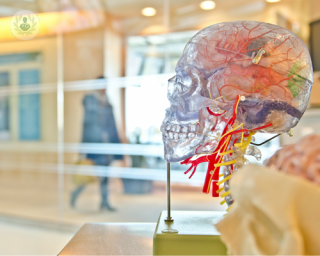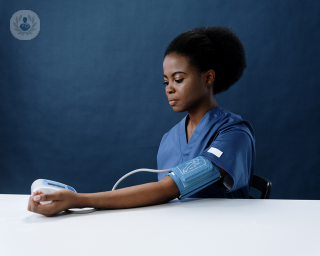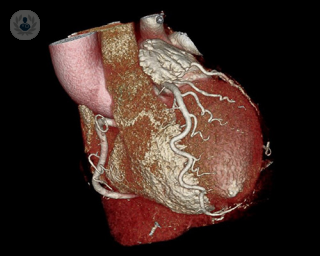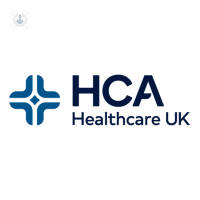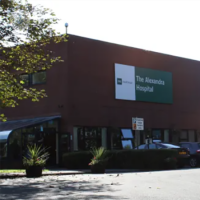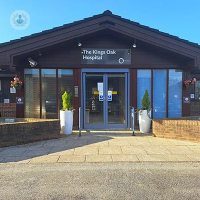Hypertension (high blood pressure)
Dr Ahmed Elghamaz - Cardiology
Created on: 11-13-2012
Updated on: 03-28-2024
Edited by: Karolyn Judge
What is hypertension?
Hypertension, or high blood pressure, is a common chronic condition where your resting blood pressure is persistently higher than what is considered a normal reading of 120/80mmHg (millimetres of mercury).
If your systolic pressure (the force of your blood against the artery walls when your heart beats) is persistently higher than 140mmHg and your diastolic pressure (the force of your blood against the artery walls when your heart relaxes) is persistently higher than 90mmHg, then you have hypertension. This translates as a reading of 140/90mmHg.
Based on different readings, hypertension can be classified as:
- Mild or prehypertension: between 130/85 and 139/89mmHg;
- Stage 1 hypertension: between 140/90 and 159/99mmHg;
- Stage 2 hypertension: between 160/100 and 179/109mmHg;
- Stage 3 hypertension: 180/110mmHg or higher.
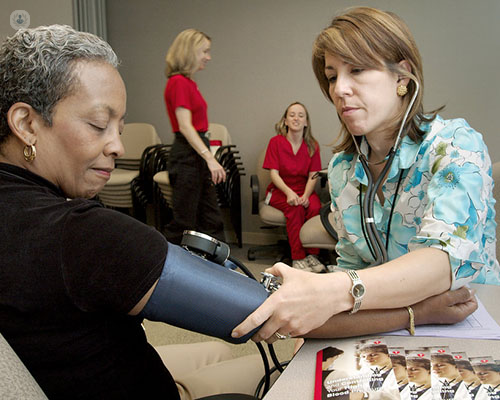
What's the outlook for hypertension
Hypertension is a complex condition which may lead to severe complications, such as chest pain, heart attack, kidney failure, cardiac insufficiency and stroke. Hypertension can also lead to premature death.
Worldwide, it is estimated that 1.28 billion adults between the ages of 30-79 have hypertension - of which nearly half are unaware of their condition and without proper treatment.
Hence, being aware of your blood pressure and controlling a healthy level is very important for your overall health.
What are the symptoms of hypertension?
In most cases, hypertension is asymptomatic (with no symptoms), even if blood pressure readings reach life-threatening high levels.
In instances where symptoms do occur, people may experience:
- Headaches;
- Dizziness and/or vertigo;
- Buzzing or hissing in the ears;
- Eyesight problems.
- Nosebleeds;
- Shortness of breath
The symptoms of hypertension are not specifically linked to these conditions and they may be overlooked as being related to other, less severe conditions.
How is hypertension diagnosed?
Hypertension can be easily diagnosed with several different tests, including:
- Blood test;
- Urine test;
- Stress or exercise electrocardiogram (ECG);
- 24-hour ambulatory blood pressure monitoring.
During a blood pressure measurement, your doctor will place an inflatable arm cuff around your arm, and proceed to read your blood pressure levels using a pressure-measuring gauge. This process will be repeated in both arms to see if there is a difference.
It is important to check both of the numbers in a blood pressure reading, but people who are 50 years old or above, should pay special attention to the systolic reading. This is due to a condition called isolated systolic hypertension, a common type of hypertension among people older than 65, in which the diastolic pressure remains normal, but the systolic pressure is elevated.
If you have persistent high blood pressure readings in two or more separate measurements, you will be diagnosed with hypertension. Diagnosis of hypertension is rarely given after just one reading, because blood pressure rises and falls during the day, and it can be affected by environmental conditions. Your doctor will look for a primary issue which may be responsible for your high blood pressure.
What causes hypertension?
Hypertension usually develops over time. This can be caused by:
- Ageing (people over 65 years old are more at risk)
- Family predisposition
- A diet high in salt and fats
- Smoking
- Obesity
- Having a sedentary lifestyle
- Drinking alcohol
- Stress
Hypertension can also be caused by the use of certain medication or other concurrent medical conditions, like diabetes complications and kidney disease. This type of hypertension occurs more quickly and becomes more severe.
Some women have hypertension before, during, and after their pregnancy, which can put both mother and baby at serious risk. Hypertension can also cause problems with delivery.
The most common types of hypertension in pregnancy are:
Chronic hypertension
- High blood pressure before pregnancy or that occurs before 20 weeks of pregnancy.
Gestational hypertension
High blood pressure during pregnancy, after 20 weeks. This condition can eventually develop into preeclampsia.Preeclampsia
High blood pressure after 20 weeks of pregnancy which causes damage to organs, including the kidneys, brain and liver. Untreated preeclampsia can lead to seizures (eclampsia) and severe complications for mother and baby.Chronic hypertension with superimposed preeclampsia
Worsening high blood pressure and protein in the urine, occurring in women with chronic hypertension.
How is hypertension treated?
Hypertension can be treated with blood pressure medications, which are:
- Antihypertensive agents
- Diuretics
- Alpha-blockers
- Beta-blockers
- Sympatholytic drugs.
Sometimes, your doctor will combine two or more of these drugs to find out what works best.
You could be diagnosed with resistant hypertension if your blood pressure remains high despite taking, at least, three different types of blood pressure medication. If you need four different types of medication to control your blood pressure, you may also be diagnosed with resistant hypertension. Your doctor will investigate a possible secondary cause for the high blood pressure.
However, it is important to keep in mind that medication therapy should always be accompanied by lifestyle changes. A low-salt diet, constant and moderate intensity exercise, weight control, stopping smoking and cutting down on alcohol can help you reduce your blood pressure.
Which doctor should I talk to?
If you are suffering from hypertension, you should see a cardiologist. In case you also have other conditions, you may have to see an internal medicine doctor: a nephrologist or a neurologist.
For more information about high blood pressure and hypertension, visit the dedicated page on the NHS website.

